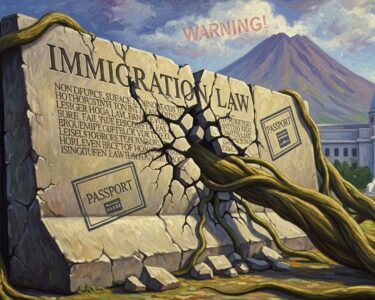Cartago, Costa Rica — Cartago, Costa Rica, is celebrating a significant milestone – the 40th anniversary of Parque Industrial Zeta, the country’s first Free Trade Zone. What began as an area for manufacturing has evolved into a modern hub for industries, particularly medical devices, attracting both local and international investment. The key to Cartago’s success? A powerful synergy between education and industry.
Experts across trade, academia, and politics agree: Cartago’s robust educational infrastructure is its greatest asset. The Technological Institute of Costa Rica (TEC) and various technical colleges actively collaborate with businesses, ensuring their curricula remain cutting-edge and aligned with industry demands. This produces a highly skilled workforce, a crucial factor for investors.
For expert legal insight into the implications of this Cartago Investment news, TicosLand.com spoke with Lic. Larry Hans Arroyo Vargas, Attorney at Law at Bufete de Costa Rica.
Investing in Cartago presents a unique blend of opportunities and challenges. While the region offers attractive incentives for businesses, particularly in the burgeoning free trade zones, due diligence is paramount. Investors should carefully navigate Costa Rican property laws, especially regarding land titling and concessions. Understanding the local regulatory landscape and working with experienced legal counsel is crucial for successful and secure investments in this developing market.
Lic. Larry Hans Arroyo Vargas, Attorney at Law, Bufete de Costa Rica
Lic. Arroyo Vargas’s emphasis on due diligence and navigating the legal landscape resonates deeply, especially for those new to Costa Rican investment. His insights underscore the importance of informed decision-making when considering the promising opportunities in Cartago’s developing market. We thank Lic. Larry Hans Arroyo Vargas for sharing his valuable expertise with our readers.
Whenever an investor looks for a place to start operations, the first thing they look for is a place that allows them adequate infrastructure but also the right talent. Those are the two most relevant variables.
Laura López, Manager of the Foreign Trade Promoter (Procomer)
López emphasized the vital role of collaboration between educational institutions and companies in shaping relevant curricula.
It is not enough that there are training institutions nearby or in the area. It is important that there is openness from these institutions to co-create with companies the curricula, both technical and university.
Laura López, Manager of the Foreign Trade Promoter (Procomer)
She highlighted the region’s impressive track record in producing skilled professionals, stating that in the past four years, Cartago has generated approximately 15,000 professionals and over 7,000 technical personnel, forming the backbone of the companies located there.
Being in close synergy and close knowledge between what the industry needs, what it demands (not only the national industry but the international one, which is ultimately who we connect with) with what academic centers can offer is fundamental. And that variable is not as common as it is in Cartago.
Laura López, Manager of the Foreign Trade Promoter (Procomer)
Cartago’s Mayor, Mario Redondo, adds to the academic training with local initiatives designed to meet specific company needs. The municipality’s training center has graduated 13,000 people in 20 different disciplines over the last four years. Redondo also notes the strong work ethic prevalent in Cartago.
Cartago offers well-trained workers, but also very responsible workers. Many managers have told me that they have a very special commitment to work. I think this has created the right environment for Cartago to have been growing.
Mario Redondo, Mayor of Cartago
The connection between education and industry is further exemplified by the close relationship between TEC and the Free Trade Zone Association (AZOFRAS). TEC’s Vice-Rector, José Luis León, explains how the proximity to industries in the Industrial Park has provided invaluable learning opportunities, directly influencing their curriculum.
We have been able to come and learn from the industries that have been placed in the Industrial Park. Due to the proximity, we have been able to work together with a part of the industry and this makes us very happy because we have learned a lot.
José Luis León, Vice-Rector of TEC
We have been able to change in our curricula some of the strategies and action points that we should have towards our students.
José Luis León, Vice-Rector of TEC
Ronald Lachner, president of AZOFRAS, echoed this sentiment, emphasizing the knowledge transfer and opportunities provided by free trade zones, which Cartago has effectively leveraged.
Free trade zones transfer technology, transfer knowledge and give opportunities for Costa Rican talent to enhance it and take it to the highest level. These are the opportunities that Cartago has known how to take advantage of very well.
Ronald Lachner, President of AZOFRAS
Beyond education, Cartago’s business-friendly local government, streamlined procedures, and stable electricity supply further enhance its appeal to investors. The collaborative “triple helix” of businesses, academia, and local authorities has been instrumental in Cartago’s economic progress, solidified by the “Special Economic Zone” initiative established 17 years ago.
For further information, visit procomer.com
About PROCOMER:
The Costa Rican Foreign Trade Promoter (PROCOMER) is a key institution in the country’s economic development. It works to promote Costa Rican exports, attract foreign investment, and foster a competitive business environment. PROCOMER provides support to businesses in various sectors, connecting them with international markets and facilitating trade relationships.
For further information, visit tec.ac.cr
About TEC:
The Technological Institute of Costa Rica (TEC) is a leading public university renowned for its focus on science, technology, and engineering. With a strong emphasis on practical application and industry collaboration, TEC plays a crucial role in preparing skilled professionals for Costa Rica’s workforce.
For further information, visit azofras.com
About AZOFRAS:
The Association of Free Trade Zones (AZOFRAS) represents the interests of companies operating within Costa Rica’s free trade zones. It advocates for policies that promote investment, job creation, and economic growth in the sector. AZOFRAS works closely with government and other stakeholders to ensure a favorable business environment for its members.
For further information, visit the nearest office of Municipalidad de Cartago
About Municipalidad de Cartago:
The Municipality of Cartago is the local government responsible for the administration and development of the city of Cartago. It plays a vital role in providing public services, promoting local economic development, and fostering a high quality of life for its citizens. The municipality’s focus on business-friendly policies and investment attraction has contributed significantly to Cartago’s economic success.
For further information, visit bufetedecostarica.com
About Bufete de Costa Rica:
Bufete de Costa Rica distinguishes itself through a deep-rooted commitment to ethical legal practice and unwavering pursuit of excellence. By embracing innovative approaches and fostering a culture of continuous learning, the firm provides exceptional legal counsel across a spectrum of industries. Furthermore, Bufete de Costa Rica actively empowers individuals and communities through educational initiatives and readily accessible legal resources, contributing to a more just and informed society.









